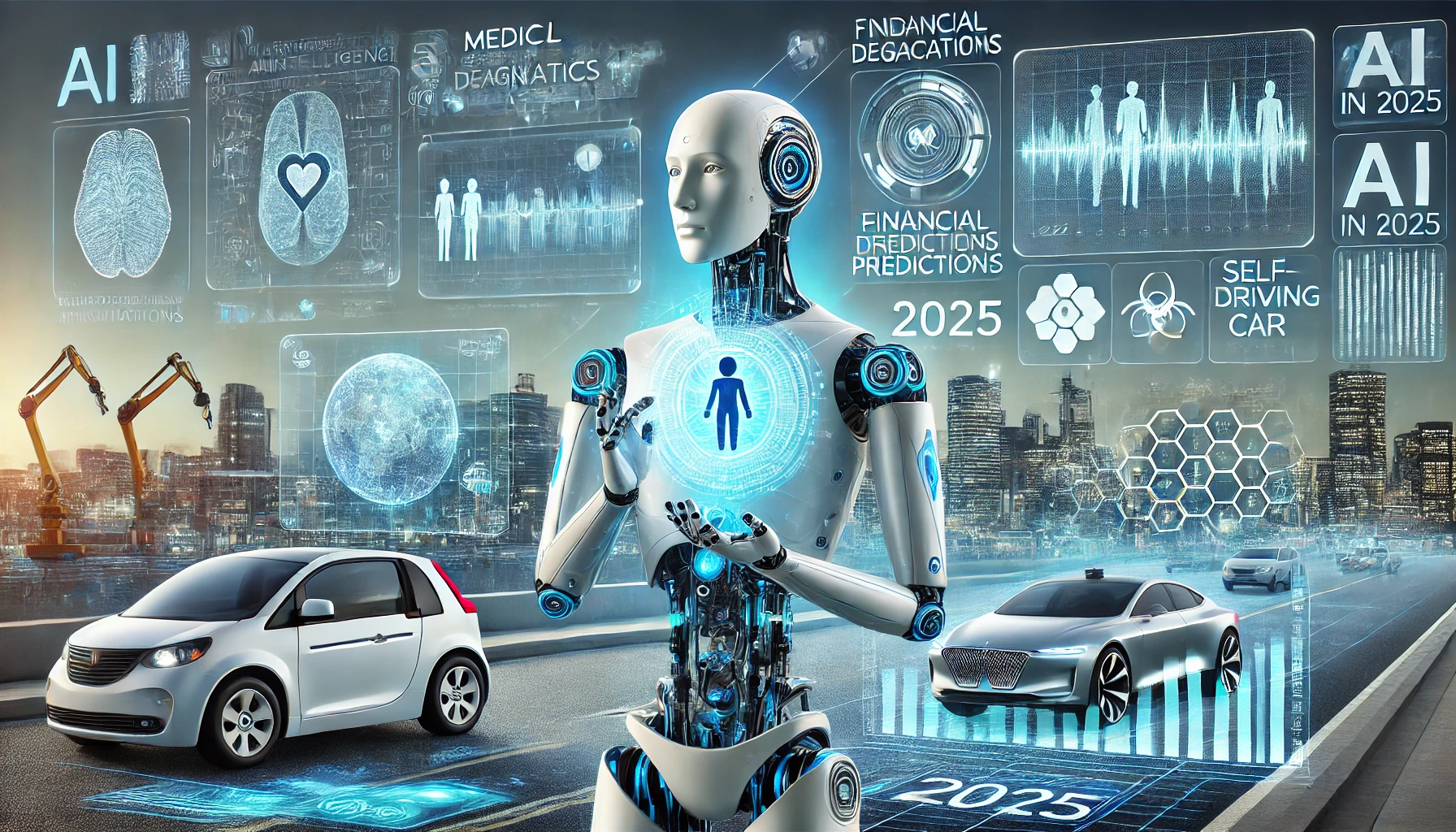Artificial Intelligence (AI) continues to evolve at an astonishing pace, shaping industries, businesses, and daily life. As we step into 2025, AI is more powerful and integrated than ever before. This article explores the latest advancements, breakthroughs, and future trends in AI.
1. AI-Powered Healthcare Innovations
One of the most significant applications of AI in 2025 is in healthcare. AI is helping doctors diagnose diseases with greater accuracy, enabling personalized treatment plans, and even assisting in drug discovery.
- AI-driven diagnostics: Advanced machine learning models can now detect diseases like cancer, Alzheimer’s, and cardiovascular conditions earlier than traditional methods.
- AI in robotic surgery: Autonomous robotic surgeons powered by AI assist doctors in performing complex procedures with enhanced precision.
- Drug discovery acceleration: AI models analyze vast amounts of biomedical data to identify new drug candidates, significantly reducing the time needed for clinical trials.
2. The Rise of Multimodal AI Models
Multimodal AI models, capable of processing text, images, video, and audio simultaneously, are revolutionizing various fields. OpenAI, Google, and Meta have introduced cutting-edge AI systems that can understand and generate content across multiple formats.
- Enhanced virtual assistants: AI-powered chatbots now comprehend voice commands, interpret facial expressions, and respond contextually to user needs.
- AI in content creation: These models generate realistic images, videos, and even music with minimal human input, making them valuable for digital marketing and entertainment industries.
3. AI in Finance and Fraud Prevention
The finance sector continues to leverage AI for fraud detection, algorithmic trading, and customer service automation.
- Fraud detection: AI-powered security systems analyze user behavior and transaction patterns to identify fraudulent activities in real time.
- AI in stock market predictions: Financial institutions use deep learning models to predict market trends, providing investors with more accurate data-driven insights.
- Personalized banking: AI chatbots offer tailored financial advice, helping customers manage their savings, investments, and expenses.
4. Autonomous Vehicles and AI-Driven Transportation
Self-driving technology has reached new heights in 2025, with AI making transportation safer and more efficient.
- Level 5 autonomy in vehicles: Tesla, Waymo, and other companies are introducing fully autonomous cars capable of navigating complex traffic scenarios without human intervention.
- AI in traffic management: Smart cities use AI-powered traffic systems to reduce congestion and optimize travel routes.
- AI-powered drones: Delivery services increasingly rely on AI-controlled drones for faster and more efficient deliveries.
5. AI and Robotics: The Future of Automation
AI-driven robots are becoming more sophisticated, assisting in manufacturing, customer service, and even household chores.
- Humanoid robots: Companies like Boston Dynamics and Tesla are developing robots that can interact naturally with humans, perform physical tasks, and assist in various industries.
- Warehouse automation: AI-powered robotic arms and sorting machines are revolutionizing e-commerce logistics.
- AI-driven personal assistants: Smart home robots help with daily tasks, such as cleaning, cooking, and organizing.
6. AI Ethics and Regulations in 2025
As AI grows more powerful, ethical concerns and regulatory frameworks are becoming more critical. Governments worldwide are implementing stricter regulations to ensure responsible AI development.
- Transparency in AI decision-making: Companies must disclose how AI systems make decisions, especially in critical sectors like finance and healthcare.
- Bias and fairness: Researchers are working on reducing algorithmic bias to ensure AI models provide unbiased and equitable outcomes.
- Data privacy: AI regulations are focusing on data protection laws to prevent unauthorized use of personal information.
7. AI in Space Exploration
NASA and private space companies like SpaceX are integrating AI into their missions for deep space exploration and planetary research.
- AI-driven space probes: Autonomous AI-powered spacecraft analyze and transmit data without human intervention.
- AI in astronaut assistance: AI assistants help astronauts monitor spacecraft systems, detect potential malfunctions, and suggest solutions.
- AI-powered simulations: Machine learning models simulate space conditions to test mission scenarios before actual deployment.
8. The Future of AI: What’s Next?
Looking ahead, AI is expected to become even more integrated into everyday life. Here are some anticipated developments:
- Artificial General Intelligence (AGI): Scientists are working towards AGI, where machines can perform intellectual tasks at human levels.
- AI in mental health: Advanced AI-driven therapy applications are expected to provide real-time emotional support and mental health monitoring.
- Quantum AI: The fusion of quantum computing and AI will unlock new problem-solving capabilities that are currently impossible with classical computing.
Artificial Intelligence in 2025 is transforming industries and reshaping human interaction with technology. As AI continues to advance, it is crucial to balance innovation with ethical considerations to ensure a positive impact on society.
Stay updated with the latest AI news and developments as we move toward a future powered by artificial intelligence!
